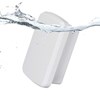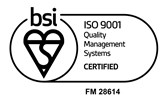In the vast and unpredictable ocean of maritime needs, the 73 Series enclosures emerge as the stalwart protectors of electrical components. Crafted from the robust UV-resistant ASA material, these enclosures are the seasoned sailors of the electronic protection seas, braving the sun's relentless rays and standing steadfast against the relentless tide with its IP68 waterproof rating.
What comes first? The PCB or the enclosure?
15/03/2021
Designing new electronic equipment is a lengthy process, from initial concept to product design, prototyping, selecting an enclosure and so on… but is there a correct order to carry out these tasks? Certain tasks must come before others such as concept must come before prototype as, how would you know what you are prototyping!? But when it comes to the enclosure and PCB, what came first? Like the age-old question of the chicken and the egg, is there a right or wrong answer? Probably not. What we do know as a leading enclosure manufacturer is more commonly, the enclosure is selected at the later stages, and even the last stage in the process before marketing and sales get their hands-on things!
Why is that? And can it be done in a better way? We think it can be… At CamdenBoss we encourage to secure and test enclosures at earlier stages, so that the painstaking task of sourcing an appropriate off the shelf solution is a thing of the past. Why do we recommend you take this route? Well quite simply there are implications that enclosures present that in some circumstances cannot be helped as that’s simply the way they are designed, read on to explore some of these.
Space being at the top of the list, in many standard off-the-shelf electronic enclosures, there are obstructions that prevent the PCB from reaching the far corners or walls of the internal space, thus creating restrictions. Imagine a perfectly designed PCB, carefully laid out to operate in the best way possible. now try to find a box for that to fit into perfectly, easier said than done; without taking the custom design route.
These restrictions are normally seen as screw pillars that are used to attach the lid to the base and are commonly found around the corner edges of the box. These can present all types of issues when selecting an enclosure later on down the line.


CamdenBoss set to design a solution that combated this common flaw. This can be seen in the newly released Easy Assembly Electronics Enclosure. Due to the lid mounting method, these pillars are non-existent; gaining edge-to-edge PCB capability in both the lid and the base and maximising your PCB footprint. Not only will you not have corner obstructions but also the added benefit of selecting an enclosure that best fits your PCB, without having to overcompensate on the overall size.
Another way around a late enclosure design-in is enclosure fabrication. Which offers you a very flexible approach to housing your PCB. Using flat sheet plastic and other technologies, a fully custom, bespoke product can be designed and prototyped around your PCB, ensuring a tight fit. Something that can difficult with off the shelf products. a broader selection of finishes, materials and colours can also be obtained as the product is not moulded. It is worth bearing in mind enclosure fabrication if you find yourself without the perfect enclosure.
Whilst internal features can bring forward issues finding the right fit, materials and finishes are also a factor worth exploring at early stages in the design. Certain materials may lend a superior performance output whilst others, a better aesthetic for your device. Whilst enclosure appearance can be circumstantial, having the right look and material early on can really do you favours.
So, it brings us back to the question; what comes first the PCB or the enclosure? Well, we suggest that they should work parallel so that when a PCB is ready no matter your enclosure route, be it fabricated or off the shelf – you are prepared. More importantly we invite working with you at earlier stages in your design so we can suggest the correct enclosure, based on your circumstances.
If you are interested in looking at the enclosures we have to offer, or are in the early stages and think you should start considering a housing, visit our website or get in touch with our sales team by calling us on +44 (0)1638 716 101.
Connect.
Enclose.
Innovate.
For further information on products please contact our Sales Team:
Alternatively visit our distributors page to find your nearest stockist or download the latest CamdenBoss catalogues.


